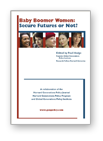 CAIRO, EGYPT: MAY 26, 2012: For the last four days, I have been here in Cairo visiting polling stations, talking with voters and chronicling the historic Egyptian Presidential elections. This is an exciting and amazing event because these relatively open/free Presidential elections are the first ever in the 7000 year history of Egypt.
CAIRO, EGYPT: MAY 26, 2012: For the last four days, I have been here in Cairo visiting polling stations, talking with voters and chronicling the historic Egyptian Presidential elections. This is an exciting and amazing event because these relatively open/free Presidential elections are the first ever in the 7000 year history of Egypt.
Out of a field of thirteen candidates, it was announced today that the two runoff candidates will be: Mohammed Mursi, the Muslim Brotherhood candidate, and Ahmed Shafiq, a former Air Force Chief and former president Hosni Mubarek’s last prime minister. The run-off election will be on June 16 & 17th.
Many people here are shocked by the final candidates that the election process has produced. On the one hand, you have Mubarek’s/the military’s man Ahmed Shafiq who is totally unacceptable to the young revolutionaries and the Islamists and on the other hand you have the Muslim Brotherhood’s Mohamed Mursi who has a conservative, fundamentalist message which alarms many in this nation.
While it is clear that a substantial number of the electorate will be dissatisfied with any runoff winner, the Egyptian people and their new President will be forced to deal with some very grave challenges facing the nation regardless of who wins and their political ideologies.
Egypt has millions of people subsisting below the poverty line. Many people live in shantytowns, suffer from malnutrition/poor health and rely on subsidized bread as their main food source. While these people have remained relatively quiet, if their needs are not addressed soon, there’s a good chance that they will become a lot more aggressive and a more violent revolution will ensue.
A new government must aspire to raise the standard of living for these people, create new jobs and improve the health care/educational infrastructure for every Egyptian in need. To realistically achieve these aspirations, three critical challenges must be dealt with by any government elected in June.
The Economy: After the uprising against the Mubarek regime, Egypt’s GDP plunged from 5.1% in 2010 to about 1.8% in 2011. For 2012, GDP is projected to grow at a weak 1.5% rate. Unemployment has soared to about 12% and the youth jobless rate, particularly among young males, is in the range of 25%. Tourism which employs about 10% of the population saw revenues fall about 30% in 2011. The major challenge facing any new President will be to first institute political reforms and restore stability and security. This will create an environment which will attract foreign investment (new jobs), reinvigorate tourism ( new jobs), restore the country’s balance of payments and the central bank’s reserve currency.
Crime: From personal experience, I can attest to the fact that Egypt and especially Cairo has become a very dangerous place to live and work in. In Cairo, it is unsafe to drive day or night. Kidnappings, robberies, sexual assaults and car thefts are wide spread. Since the revolution, this amazing increase in lawlessness represents one of the biggest changes in daily life. Mubarek’s police state controlled the streets by unflinchingly using extreme brutality. Now the police are being criticized for being too laid-back. Earlier this year, there were violent riots at a Port Said football match. While many people were injured/killed, the police just looked on and did nothing to stop the mayhem. There was a national uproar about this and police administrators were fired. During the election campaigns, crime was a paramount issue. The candidates addressed the concerns of the people about the rising crime rate by promising reform and reorganization of the police. These promises must be delivered on by the new President.
The Military: For six decades, the military has controlled Egypt. The military claims that it is not interested in continuing to rule and has promised that, in June, after the runoff election, it will turn over control of the government to civilian authorities. The main question in the minds of many is will the military actually do this. The generals have been in uncontested control for years, and their budgets have never really been reviewed or challenged by anyone. As with the Chinese military, the Egyptian armed forces have vast quasi-private economic interests including but not limited to mega construction companies, farms, water-bottling facilities and a nation-wide chain of gas stations. Will the military agree to having their perks and these quasi-private ventures under civilian control? This is a big question. Suffice it to say, it will take years for the military and the civilians to develop a culture of cooperation and to learn how to work together. The new president should play a major role in starting the process.
In the final analysis no matter who gets elected President, the fundamental problems facing Egypt cannot be side stepped any longer. The ”Egyptian Spring” born in the Tahrir Square cauldron of idealism and hope has overthrown one tyrannical and self-serving regime and is perfectly capable of doing it again. Whoever becomes President should remember this lesson.

